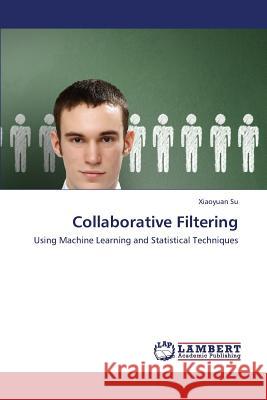Collaborative Filtering » książka
Collaborative Filtering
ISBN-13: 9783659429095 / Angielski / Miękka / 2013 / 164 str.
Collaborative filtering (CF), a very successful recommender system, is one of the applications of data mining for incomplete data. The main objective of CF is to make accurate recommendations from highly sparse user rating data. My contributions to this research topic include proposing the frameworks of imputation-boosted collaborative filtering (IBCF) and imputed neighborhood based collaborative filtering (INCF). We also proposed a model-based CF technique, TAN-ELR CF, and two hybrid CF algorithms, sequential mixture CF and joint mixture CF. Empirical results show that our proposed CF algorithms have very good predictive performances. In the investigation of applying imputation techniques in mining incomplete data, we proposed imputation-helped classifiers, and VCI predictors (voting on classifications from imputed learning sets), both of which resulted in significant improvement in classification performance for incomplete data over conventional machine learned classifiers. The main imputation techniques involved in these algorithms include EM (expectation maximization) and BMI (Bayesian multiple imputation).
Collaborative filtering (CF), a very successful recommender system, is one of the applications of data mining for incomplete data. The main objective of CF is to make accurate recommendations from highly sparse user rating data. My contributions to this research topic include proposing the frameworks of imputation-boosted collaborative filtering (IBCF) and imputed neighborhood based collaborative filtering (INCF). We also proposed a model-based CF technique, TAN-ELR CF, and two hybrid CF algorithms, sequential mixture CF and joint mixture CF. Empirical results show that our proposed CF algorithms have very good predictive performances. In the investigation of applying imputation techniques in mining incomplete data, we proposed imputation-helped classifiers, and VCI predictors (voting on classifications from imputed learning sets), both of which resulted in significant improvement in classification performance for incomplete data over conventional machine learned classifiers. The main imputation techniques involved in these algorithms include EM (expectation maximization) and BMI (Bayesian multiple imputation).











